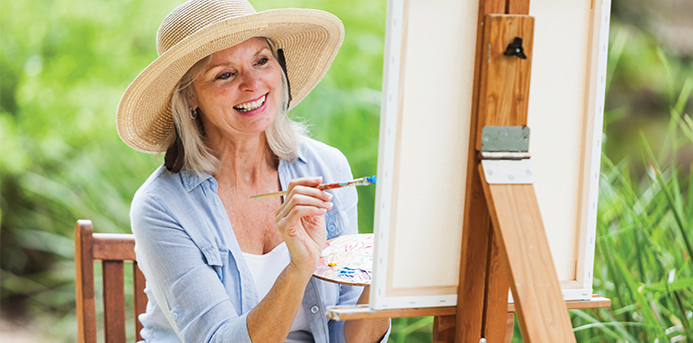It seems like every year or so we read about that 80-year-old marathon runner who practices yoga daily. Or we’ll learn about a centenarian business owner who eats raw eggs and has the sass and vigor of Samantha Jones. Not to mention the indestructible Keith Richards—a living testament to the fact you can contradict everything a doctor tells you and still live to see 70.
Which raises the age-old philosophical and physiological question: How much control do we really have over feeling young? Is eternal youthfulness doled out to a few lucky souls who won a genetic lottery? Or can we all attain it?
Helen Troncoso, the CEO and founder of Reinventing You, says feeling old can be a self-fulfilling prophecy. Many people have preconceived notions of aging, and unconsciously set themselves up for feeling decrepit once they think they should.
“If, for example, they believe aging brings about a major decline physically and mentally, they may perceive any ‘normal’ change as negative,” she says. “This will cause
them to change their behavior to match any decline they believe they’re experiencing.”
Dr. Francine Lederer, a clinical psychologist and expert on aging, life balance, life transitions and mindfulness, agrees and has observed that true spryness can be
boiled down to positive thinking.
“I think a strong portion of our health is dictated by the positive or negative messages we give ourselves,” she says, adding that deep friendships do wonders for both the
mind and body.
“Connections, connections, connections,” she says. “I can’t speak enough about the importance of surrounding yourself with people you trust and truly feel comfortable
with. Research shows that the people who live the longest come from the poorest countries like Vietnam or Columbia. It’s having a sense of community that prolongs our life.”
While having a Scrabble partner in the nursing home is wonderful and all, it isn’t everything. Preserving one’s youth is a delicate mix of togetherness and alone time.
Dr. Ralph Diner, a medical psychologist, stresses the importance of being “in the flow.” Even going so far as to hypothesize that “mindfulness” can halt aging.
But what does that mean, exactly? How does one practice “being present”?
“Staying present is about being in the here and now,” he says. To be in the flow, he says, one must be absorbed in an activity they love: art, writing, gardening, having sex, meditating, yoga—anything to get you in a trancelike state.
“It’s to be in a timeless, eternal moment. Free of pain,” he says. “That results in the pumping of blissful chemistry, which is competitive to pain, depression and the process of aging.”
So at its core, is the fountain of youth just distraction in disguise? Is the secret to staying young as simple as diverting attention from the inevitable passing of the years?
In short, yes.
“Staying in the present time can allow one the ability to focus on life right now as opposed to what’s to come,” says Lederer. “I think people who are ageless are those
who tend to stay busy and focused on achieving goals. They tend to be driven by accomplishments and seeing things through.”

